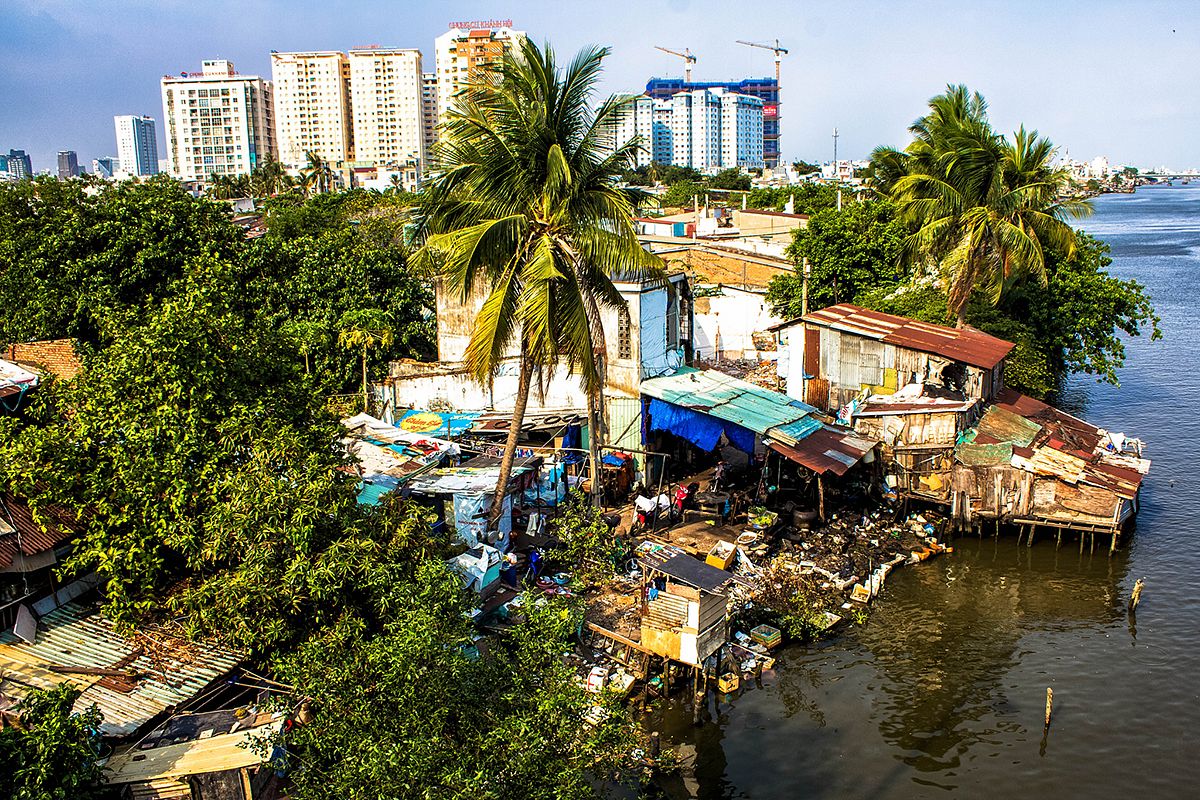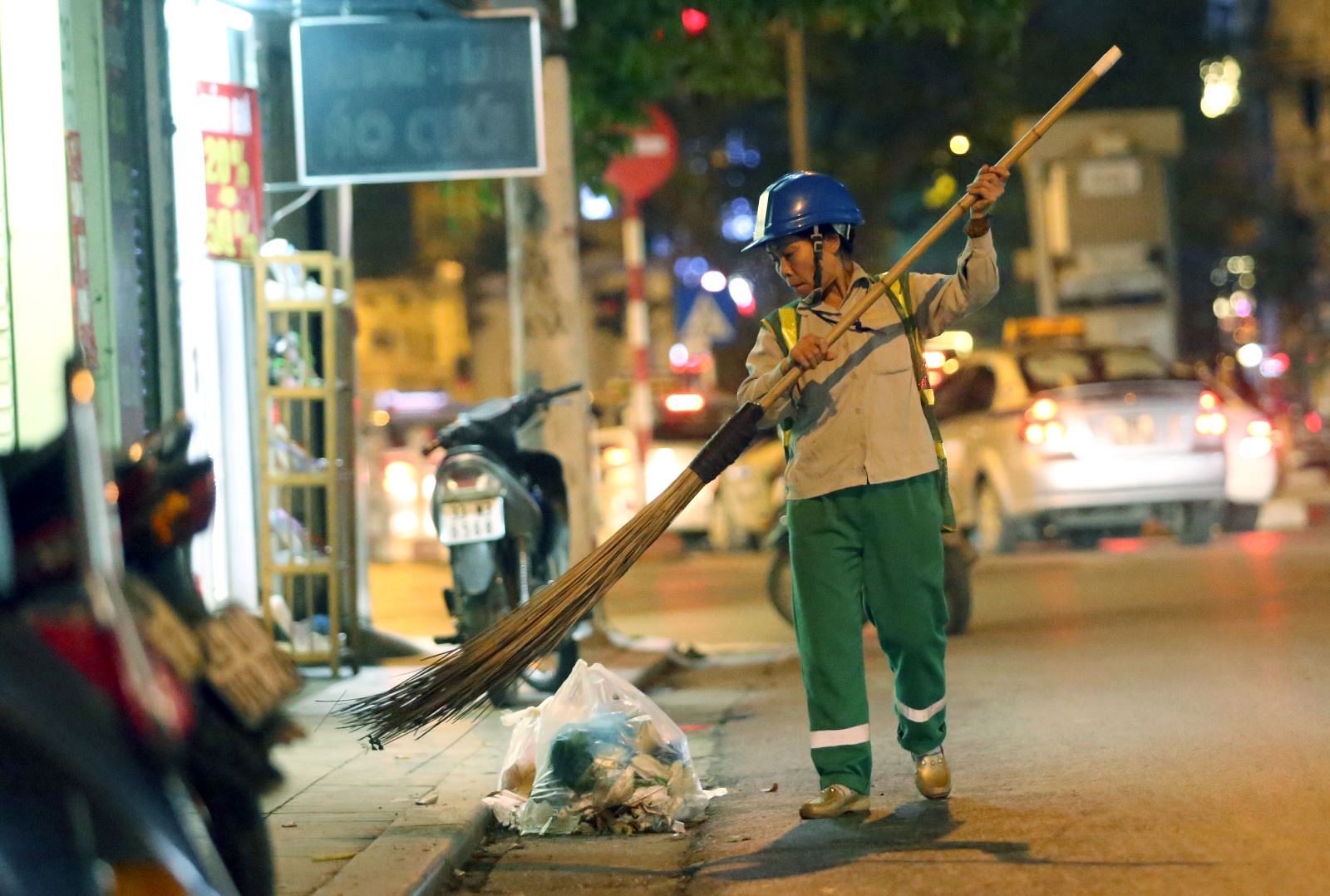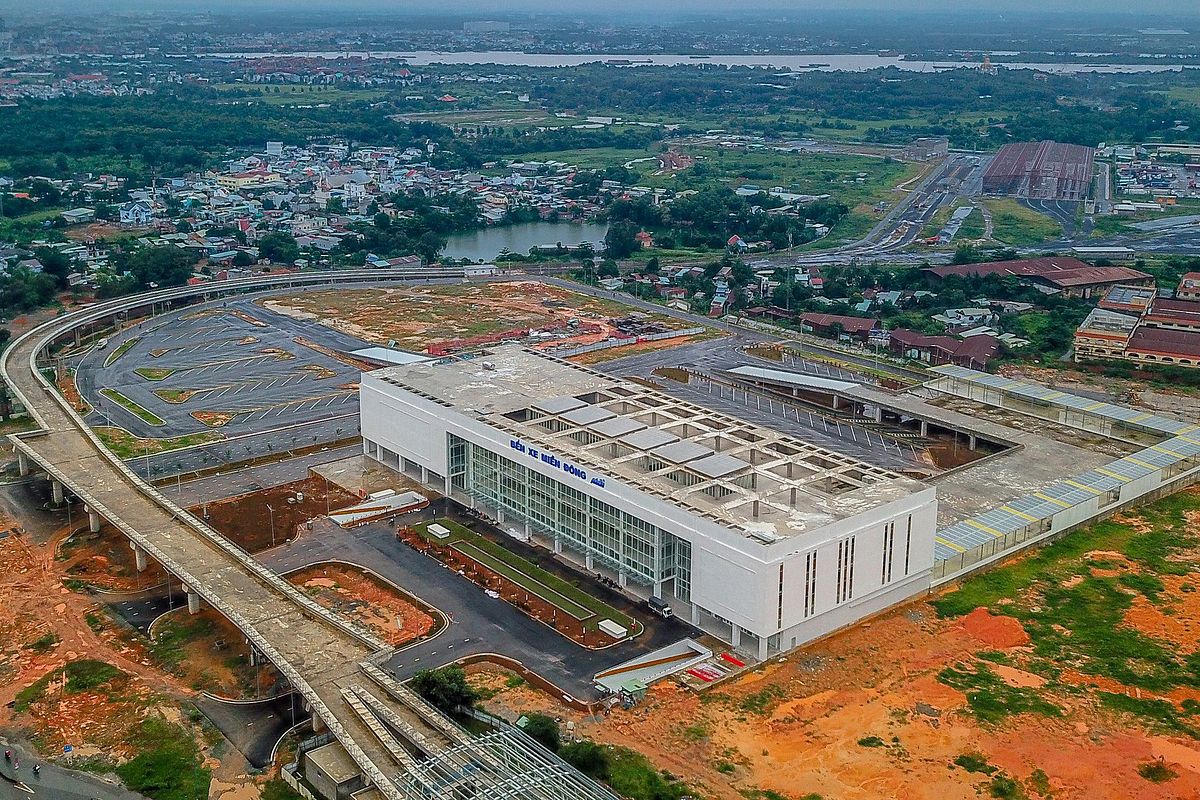Among Bùi Viện's assortment of xe ôm drivers and street food vendors, Bible-toting religious enthusiasts and other colorful personalities, 66-year-old Nghĩa stands out for his kind eyes and walrus-like mustache.
When we meet for the second time, near a pagoda in one of Phạm Ngũ Lão's wide alleys, Nghĩa rolls up on a well-worn, bright blue xích lô, slowing to a halt just beside me. We'd found each other the week before, when I was hanging around the backpacker area scouting xích lô drivers for a story. Well-versed in introductions, Nghĩa approached me, proudly unfolding the laminated news clippings he keeps in his pocket.
A xích lô driver for over half his life, Trà Vinh-born Nghĩa left the Mekong Delta as a young boy after his father was killed. Shortly thereafter, his mother brought Nghĩa and her four other children to Saigon, raising them by herself.

Though his childhood was fairly normal, Nghĩa's teen years were lived out against a backdrop of war. At 19, he joined the military along with two of his brothers and was injured twice over the next six years.
Around that same time, he met his wife.
“We became friends,” he explains. “She would treat me with fruits from her garden and clean water. Later, [after 1975], we got married.”
It was a difficult time for them both. Along with the rest of the country, Nghĩa struggled to pick up the pieces after years of conflict. Money was scarce and opportunities even scarcer. By the early 1980s, he had invested in a xích lô and began taking customers around at night.

For two years, Nghĩa struggled to make ends meet, earning a meager living from nighttime customers. That is, of course, until the foreigners came.
“Things changed in the early 1990s, when the first tourists arrived in Vietnam,” says Nghĩa. “I still remember my first foreign client, an Australian woman. Her fees were much higher than I was used to receiving. After I understood, I moved my spot to Bùi Viện, got my own team and start making decent money.”
Thanks to his English skills, Nghĩa was able to earn more, allowing him to raise his four children, the eldest of whom is now 42. His youngest, a 16-year-old son, is still in school and wants to be an engineer. This pleases the xích lô driver.
“I want him to become somebody,” explains Nghĩa. “Not the lowest caste like me.”

While he acknowledges the difficult circumstances which put him in this profession, Nghĩa harbors no bitterness about the course of his life. Even at his age, he works 12 hours a day, seven days a week. It's no longer out of necessity — he has grown children who can provide for him — but there's a sense of duty in Nghĩa's efforts. For decades, the xích lô has sustained him and raised his family. He's relatively well-known now, especially among high-end hotels, and routinely ferries customers around the city.

It was nearly noon by the time I clambered out of the weather-worn, 15-year-old xích lô. Along with a small but steadfast collection of other retirees, Nghĩa represents the last crop of Saigon's xích lô drivers. As the city develops and opportunities grow for young people in Vietnam, the tough times which brought Nghĩa into his lifelong occupation no longer exist. On the contrary, city officials are trying to phase out this mode of transportation, he explains. More and more, weary xích lô drivers who are struggling for fares will take the cash payout offered by the city to trade in their wheels for a different job. In another few years, xích lôs may be relegated to yet another nostalgic piece of Saigon’s collective memory.
This article was originally published in 2016.














